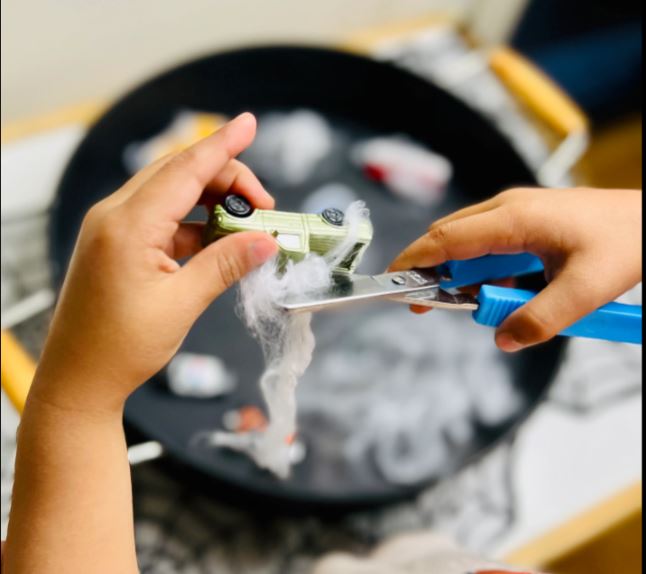
Enhance Your Kids' Fine Motor Skills With These 5 Resources - By Laina Stanley
Fine motor skills refer to the use of the small muscles in our fingers and wrists which allow us precision, coordination, and dexterity to use our hands. We use fine motor skills in so many jobs in everyday life – typing on my computer (as I write this blog!) is a fine motor skill, but so is holding and using a pen or pencil to write, using a zip, opening containers, playing with Lego or peg boards and a whole raft of other play activities and life tasks.
Fine motor skill development is important for our children to develop the strength and coordination in their hands. Fine motor skills allow pencil grasp and handwriting, which are integral parts of the schooling day. Practicing these tasks in isolation is a great way to develop fine motor skills, but before we get the strength to hold a pencil properly to write (or typing on a computer keyboard) there are lots of other ways to encourage fine motor skill development that you can do at home.
Fine motor skills start developing in infancy. Infants under 12 months of age work on opening their hands, grasping, and bringing their hands (and toys!) to their mouths, and moving their hands and arms around to wave and manipulate toys. Even simple tasks like tracing their hands with your fingers can develop motor awareness and grow fine motor skills. As a child grows, so does their fine motor ability – they move towards intentionally picking up and manipulating toys and other items like cups and cutlery, and then using their hands for play and learning.
You can support fine motor skill development for your little one by providing opportunities for them to explore toys and the world around them with their hands. Sensory play (water, dry sensory bases, sand etc) including pouring and scooping is fabulous for improving coordination and dexterity, is simple to set up, and suitable for most ages (with age-appropriate level of supervision – you know your child and their abilities best). Playdough is another great tool for fine motor skill development, building up the strength of the small muscles in a child’s hand through manipulation of the dough (rolling, squishing, using cutters or other tools). Blocks of any type are also great for fine motor skill growth; manipulating the blocks to build towers and other shapes supports growth.
Looking for some other ideas to grow your little one’s fine motor skills? Here are 5 resources from Treasure Trunk to help fine motor skill development (this is by no means an exhaustive list!):
- Fine motor tool kit – small scoops/spoons are a great addition to your sensory play and perfect for practicing scooping, spooning, and stirring which are all then transferrable to essential life skills (think cooking and feeding yourself).

2. Scissors- scissor skills grow as your little one’s dexterity in their hands grows. I love these loop scissors as a starter for growing scissor skills.

3. Peg board – peg boards are a great fine motor work out as little fingers work to manipulate the peg into the correct hole. They are also a fabulous tool for growing cognitive skills such as problem solving and creativity as your little one copies a pattern from a pre-set card or designs their own.

4. Threading/lacing toys - threading and lacing toys grow the skills to allow a child to be able to tie shoelaces as well as sewing and other life skills. Treasure Trunk have a great range of threading/lacing toys.

5. Pop it fidget toys – the ultimate fine motor/fidget toy, pop it’s are great for isolating individual fingers to pop each button and also can be used as a base to balance water beads (or fruit such as blueberries if you prefer a taste safe option) to extend the fine motor fun.

Blog by Laina @baby_burrito_play
Occupational Therapist

Leave a comment